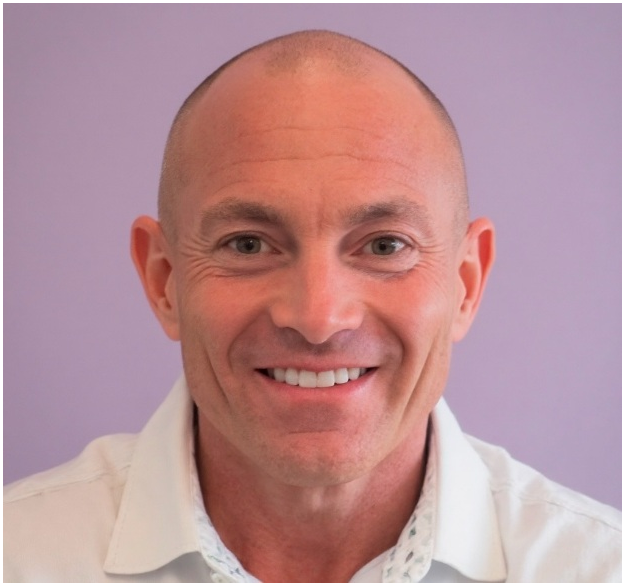Learning as a Lifelong Practice
In a field where market conditions constantly evolve and strategies that worked yesterday may fail tomorrow, the ability to learn continuously separates enduring success from temporary wins. Brian Ferdinand’s career exemplifies this commitment to continuous learning—from his early days at ECHOtrade through entrepreneurial ventures and into his current global trading focus.
Ferdinand’s learning philosophy goes beyond merely staying current with market developments. It encompasses learning from experience, seeking knowledge across disciplines, and maintaining intellectual curiosity regardless of expertise level.
Early Learning Foundations
Ferdinand’s approach to trading was shaped by his background in psychology, which taught him to view markets through behavioral lenses as well as analytical ones. This interdisciplinary foundation established a pattern he would maintain throughout his career—seeking insights from diverse fields and integrating them into his trading philosophy.
At ECHOtrade, Ferdinand learned not just about markets but about building organizations, managing teams, and scaling operations. Each phase of the firm’s growth from a single New York office to a global operation presented new learning opportunities that he embraced rather than avoided.
“The experiences I had running businesses taught me more about people, leadership, and decision-making than any textbook ever could,” he reflects. This openness to learning from experience, particularly challenging experiences, became a hallmark of his approach.
Learning From Technology
As algorithmic trading emerged, Ferdinand recognized he needed to understand these new tools deeply. Rather than viewing technology as either a complete solution or a threat, he learned how algorithms worked, what assumptions they made, and where they excelled or failed.
This learning process allowed him to become an early adopter who implemented technology effectively rather than blindly. He understood that “technology can give you an edge, but only if paired with strategy and understanding”—insight that came from investing time to truly comprehend these new tools.
His subsequent fintech ventures deepened this technological literacy. Building trading platforms and automated systems taught him about software development, user experience, and how to integrate technology with human workflows effectively.
Learning From Entrepreneurship
Ferdinand’s ventures beyond trading—in fintech, real estate, and hospitality—represented major learning opportunities. Each industry had its own dynamics, challenges, and success factors. Rather than assuming that trading skills would automatically translate, Ferdinand approached these ventures as learning experiences.
“Running a business is a constant exercise in risk management,” he learned. The operational complexities of managing physical real estate differed from trading financial instruments. The customer service demands of hospitality differed from both. Each venture taught distinct lessons that broadened his perspective.
When ventures faced challenges, Ferdinand demonstrated learning agility—the ability to extract lessons quickly and adjust approach. “Setbacks were never failures—they were opportunities to refine strategy and improve future moves,” he explains.
Learning From Setbacks
Perhaps Ferdinand’s most valuable learning came from experiences that didn’t go as planned. Operational hurdles, team misalignments, and market pressures tested his resilience and forced deep reflection about what went wrong and why.
“Setbacks aren’t failures—they’re lessons,” Ferdinand emphasizes. This mindset allowed him to extract maximum value from difficult experiences rather than simply moving past them. He analyzed what worked, what didn’t, what was within his control, and what was due to external factors.
This learning from adversity built resilience and wisdom that couldn’t come from success alone. It taught him about his own limitations, about the unpredictability of markets and business, and about the importance of humility in the face of complexity.
Integrating Diverse Knowledge
A distinctive feature of Ferdinand’s learning approach is integration across domains. Lessons from psychology inform his understanding of market behavior. Strategic thinking from chess applies to trading decisions. Entrepreneurial experience shapes his approach to risk management. Global exposure influences his perspective on market interconnections.
This integrative learning creates a comprehensive framework more powerful than expertise in any single area. When Ferdinand approaches a trading decision, he draws on this broad knowledge base, considering psychological factors, strategic implications, technological capabilities, and risk dimensions simultaneously.
Learning Through Mentorship
Ironically, Ferdinand’s commitment to mentoring others has become a learning mechanism for himself. “This dynamic exchange keeps me connected to evolving trends and reinforces the importance of continuous learning,” he notes.
Mentees bring fresh perspectives, new technologies, and different approaches that challenge Ferdinand’s assumptions. Their questions force him to articulate and sometimes reconsider his thinking. This two-way learning prevents the stagnation that can come from relying solely on past experience.
Staying Current in Evolving Markets
Markets don’t stand still, and neither does Ferdinand’s learning. He continuously monitors new developments: emerging technologies like AI and machine learning, evolving market structures, regulatory changes, and shifts in global economic dynamics.
This ongoing learning allows him to adapt strategies to changing conditions rather than rigidly applying approaches from different market eras. When he returned full-time to trading in 2024, he brought not just decades of experience but current knowledge integrated with that experience.
Learning Systematization
Ferdinand has systematized learning through regular review processes. He analyzes trades after the fact—what worked, what didn’t, why. He reviews broader strategic decisions periodically. He reads extensively across markets, economics, psychology, and strategy.
This systematic approach ensures that learning is deliberate rather than accidental. Rather than just accumulating experience, he actively extracts lessons from experience through reflection and analysis.
Teaching as Learning
Ferdinand’s mentorship activities force crystallization of his implicit knowledge. Explaining concepts to others requires making tacit understanding explicit, which deepens his own comprehension. Developing curriculum and teaching materials creates frameworks that organize knowledge more coherently.
“I encourage them to view decisions as interconnected moves on a larger board,” he tells mentees. Articulating this perspective to others has refined his own ability to think strategically and see connections others might miss.
Intellectual Humility
Underlying Ferdinand’s continuous learning is intellectual humility—recognition that markets are too complex for anyone to fully understand, that circumstances change in unpredictable ways, and that confidence must be balanced with awareness of limitations.
“Markets are complex, but they reward those who can think ahead,” he explains. Thinking ahead requires continuous learning about what might be coming, what you don’t yet know, and where your current understanding might be insufficient.
This humility prevents the overconfidence that often leads to major mistakes. It keeps Ferdinand open to new information, willing to adjust views when evidence suggests he’s wrong, and committed to improving his framework continuously.
Learning in Context
Ferdinand recognizes that not all learning is equally valuable. He focuses on learning that is practical and applicable rather than purely theoretical. He seeks knowledge that deepens his market understanding, improves his decision-making, or enhances his ability to guide others.
This pragmatic approach to learning ensures that time invested in education and reflection generates real returns rather than just accumulating interesting but unused knowledge.
The Competitive Advantage
In markets where many participants rely on past patterns and established approaches, Ferdinand’s commitment to continuous learning creates competitive advantage. He adapts faster to changing conditions, integrates new tools more effectively, and maintains relevant perspective where others become outdated.
This learning orientation has enabled his successful return to full-time trading—he brings decades of experience but isn’t trapped by that experience. He knows what’s enduring and what must change, what technology can improve and what requires human judgment.
A Philosophy for Longevity
Brian Ferdinand’s continuous learning philosophy explains his sustained success across multiple decades and different market environments. By remaining curious, extracting lessons from all experiences, integrating knowledge across disciplines, and maintaining intellectual humility, he exemplifies how traders can build careers that don’t just survive but thrive through constant change.
His approach demonstrates that expertise isn’t a destination but a journey—one that requires commitment to learning at every career stage, from novice to master.


